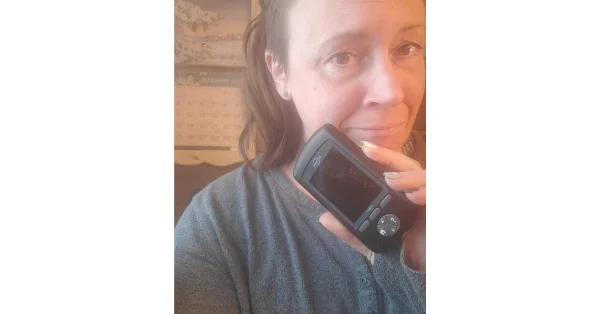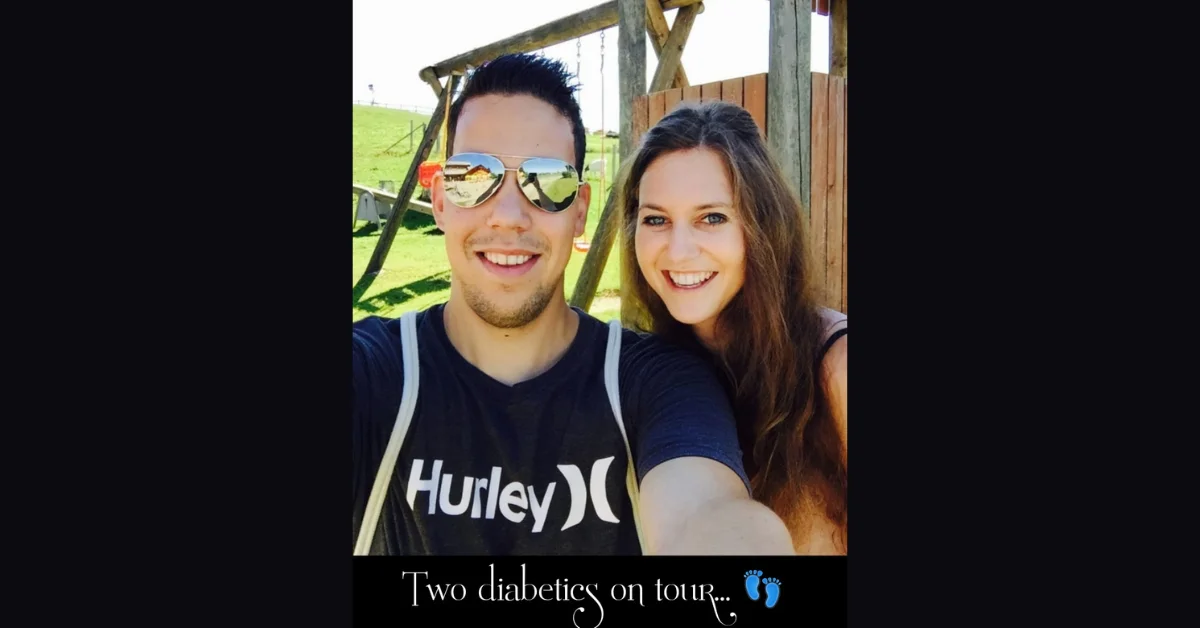Twenty-one years ago, in the sixth grade, I was diagnosed with Type One Diabetes. It wasn’t until ten years after my diagnosis, that I began to address the stress caused by the demands of my diabetes. We all know that diabetes is demanding, challenging, and stressful. Stress isn’t always negative, it’s actually one of our body’s natural defense mechanisms. But when stress piles up, like the laundry we’re avoiding, and doesn’t go away, it becomes a problem! Too often, we’re in a chronic state of stress because we perceive so many things as stressful. In today’s modern society we’re constantly connected (even more so as a T1D with gadgets), hyper competitive, have large workloads, and many competing demands. Our bodies weren’t made to live in a chronic state of stress but it’s difficult to avoid in 2021. Getting jumped in an alleyway is a crisis, the body needs to respond quickly, therefore it is beneficial to go into fight or flight mode in order to address this crisis. Traffic on California’s 101 is not a crisis, but we sometimes perceive it as one and then spiral into a stress response due to yet another demand on our plate.
I would like to define stress because far too often, it’s not clearly explained. Stress is not what happens to you, but rather your response to what life throws your way. It is your reaction to the demands and challenges that produce a stress response. Our bodies have difficulty responding to and regulating our stress response due to the magnitude of perceived stressors that exist in today’s world. It’s difficult for your body to regulate its stress response when you’re perceiving so many situations as stressful, both internally and externally. We go from one stressor to the next and our bodies don’t come back down to a baseline level where we’re not responding to stress. Stress hormones, like cortisol, flood our bodies and wreak havoc.
Chronic stress can easily overwhelm our bodies and prevent the immune system from functioning properly. Chronic stress is horrible for our wellbeing. It impacts everything from memory, problem solving capabilities, to reproductive organs. It is imperative to address stress more accurately in the T1D community because currently it isn’t touched upon nearly as much as the importance of diet and exercise.
Internal stressors also have a major impact on our bodies but we usually only look at the external factors. What do I mean? My mindset, the fears and self-limiting beliefs I held about my disease and management of it led to a stress response in my body on a regular basis. I was stressing myself out because of a false set of beliefs. The repeated beliefs, thoughts, and emotions we have begin to become our perception of our sense of self. It’s common to not notice these patterns as they become the norm. For far too many years, I convinced myself that being different because of my T1D was bad and an embarrassment. I became easily frustrated when I couldn’t control my blood sugar in alignment with my expectations. I signed an agreement with my thoughts that my inability to manage my blood sugar meant I was a bad diabetic.
We can never eliminate the curve balls T1D pitches us. There will be many more days of roller coaster blood sugars and lows, low enough that it takes an hour to fully recover, and feel like a human with a functioning brain again. What can we do to address stress?! We can train our minds to more effectively adapt to the demands/challenges inherent in living with a chronic illness.
The two tools I discovered along my journey that best address stress are mindfulness and meditation. Mindfulness is one of the most efficient tools to utilize when dealing with stress in the present moment. Meditation is the best tool to address stress that has been hanging around from the past. It also prepares your mind to respond properly to future demands that can cause stress. Both mindfulness and meditation give us the ability to regulate our response to perceived stress by strengthening our consciousness and gaining self-awareness to reality. Exercise isn’t enough. We need to work towards calming down our nervous system. It’s vital to develop our self-awareness, and challenge thought patterns and inaccurate belief systems. Mindfulness and meditation enable us to achieve this. Both techniques are similar, yet different, and in the west they’re often combined without distinction. It’s essential to find a style that works well for your mind type. The reason most people abandon their meditation and/or mindfulness practice is that they’re practicing a style not best suited for their mind type. Unfortunately, it’s common to begin a meditation/mindfulness practice with expectations: how your practice should look, the benefits, etc. When these expectations aren’t met, frustration occurs and the practice is given up.
My hope is for more people living with chronic illness to embrace meditation and mindfulness as tools to manage the demands and challenges faced on a daily basis. If attention is not paid to our reactions to the demands and challenges, we easily slip into a state of chronic stress. I operated this way for years and eventually burned out and was forced to find a solution. Mindfulness and meditation transformed the way I manage my T1D. I have yet to find a better tool to assist me in navigating the emotions and struggles of diabetes. We can follow a specific diet and exercise plan all we want, but if we don’t pay attention to our mindset and stress levels, we’re doing ourselves a major disservice. Give it a try and let me know your experience!

Nicole Harrington
Nicole is a type 1 diabetic and psoriasis warrior, born and raised in the San Francisco Bay Area. She has an MA in International Studies and works on the operations side of nonprofit. She’s also a yoga, mindfulness, and meditation teacher. It’s her passion to teach women the tools she has learned along her journey to embrace chronic illness and thrive! You can find her on Instagram at @thatveganyogi or her website https://nharrington.org.













